Let's Connect
Our friendly and educated team is here to partner with you every step of the way. Connect today to learn of all the ways to partner with The Common Market.
DaySpring Farms, Danielsville, GA
Delivering local food for the common good.
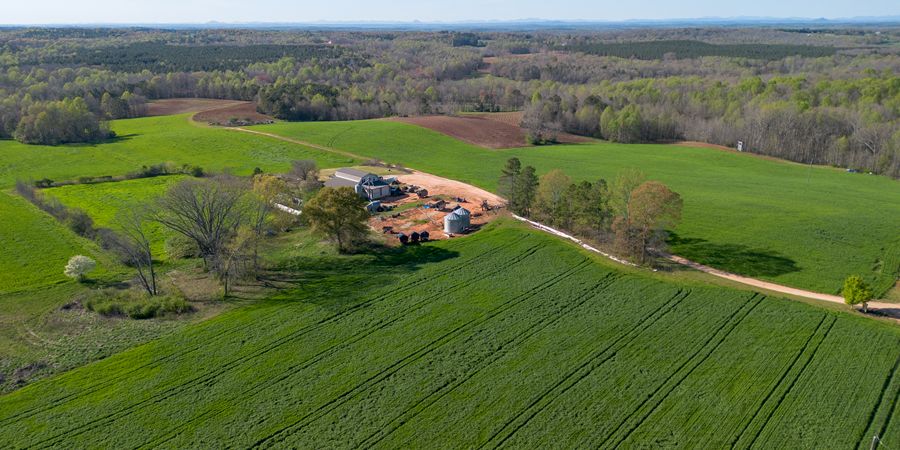
The grants total $130,000 worth of investment, with each grant averaging $11,500, including personalized technical assistance from the Georgia Grown Innovation Center. These farms are making meaningful investments in infrastructure that will help them grow more food and more efficiently sell to wholesale markets. From cold storage units to irrigation systems and fencing, these upgrades are breaking down barriers of entry for small farms and creating a foundation for long-term impact.
Learn more about the grant recipients and how each project will help them scale up their businesses:
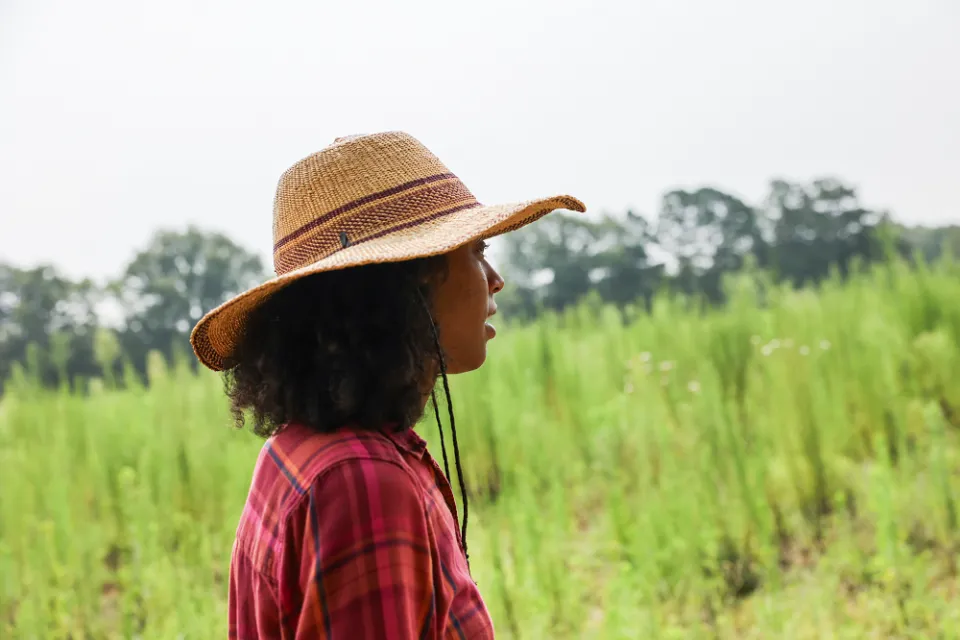
Starlit Roots, a woman-owned farm, expanded its harvest quantities with new fencing. Without a fence, Starlit Roots struggled to keep deer from destroying their harvests.
This Black woman-owned and -operated farm was founded by Tianna Rose Neal in 2020. Established on the grounds of the 400-acre Boggs Rural Life Center, historically a campus of a boarding school established to provide a quality education to Black children in the era of segregation, the farm embodies the long history and wisdom of Black agriculturalists in Georgia. In addition to integrating the wisdom and counsel of Black elders into Starlit Roots, Neal also brings the latest conservation science to her operation. With an agriculture degree and several years as a soil conservationist at the USDA’s Natural Resources Conservation Service under her belt, Tianna employs a suite of progressive soil health and pest management practices on her certified organic, diversified vegetable farm.
Their infrastructure grant funding has strengthened food safety, streamlined operations, and deepened the farm’s mission of community education and sustainability, while opening doors to larger institutional buyers.
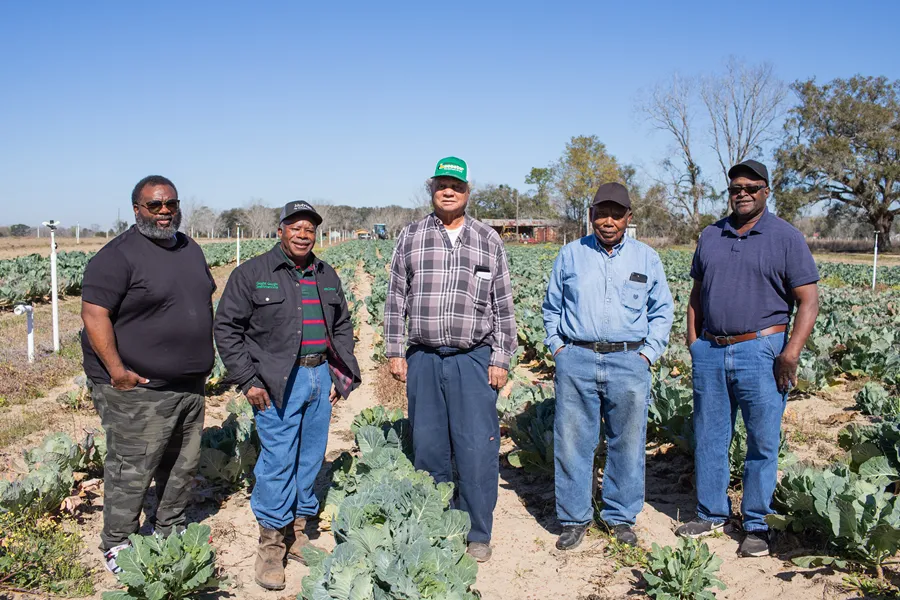
This farmer-led co-op used grant funds to purchase additional salad dryers and make improvements to their loading dock, to expand the cooperative’s processing capabilities and allow for greater efficiency in transporting products to markets.
Coastal Georgia Small Farmer’s Cooperative was established in 1998 by five African American veteran farmers looking to maintain and sustain their farming heritage and passion for growing high-quality, Georgia-grown vegetables. Presently led and managed by Lonnie J. Johnson, Jessie L. Rhodes, Roosevelt Clark, David Richardson, and John Little, the co-op collectively holds 80 years of farming experience. They take pride in growing beautiful, GAP-certified produce, including a southern favorite, Collard Greens, for school districts, grocery stores, and your community.
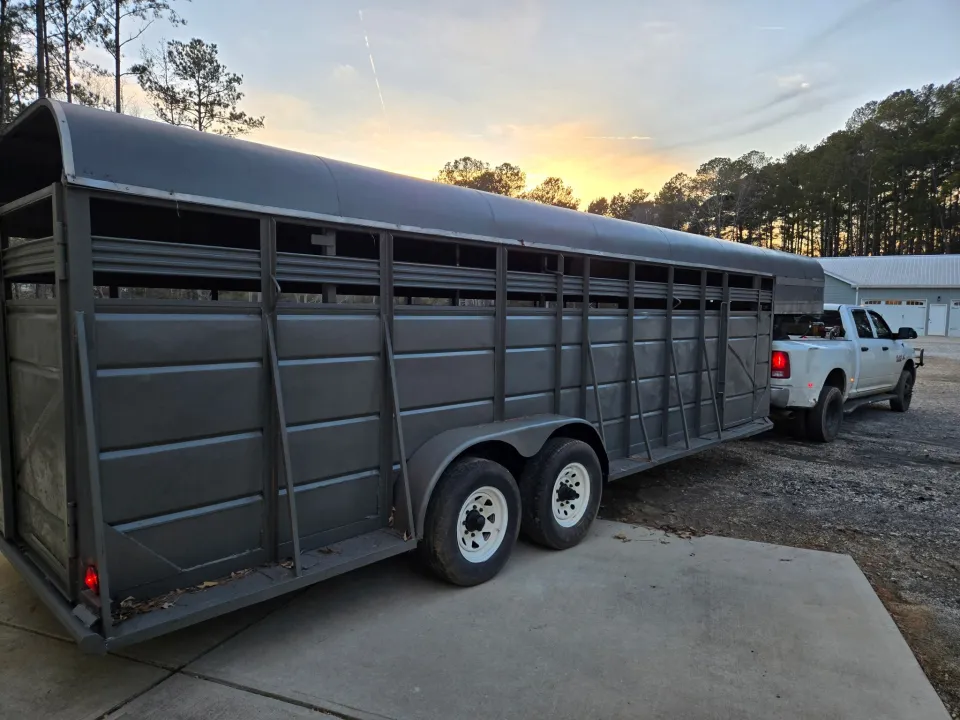
This pasture-raised livestock operation invested in a livestock trailer and portable loading chute to increase the number of animals they can transport to a USDA processing facility in South Carolina. Previously, they were only able to transport five pigs per trip. By purchasing a bigger livestock trailer and hog loading chute, they can now transport up to 28 pigs at once.
“It’s been magical,” shared owner Tamita Brown. Increasing the animal capacity helps reduce emissions and transport costs, while guaranteeing that Caribe United Farm will have enough meat to supply new wholesale accounts.
Caribe United Farm is a 74-acre farm in Crawford, Georgia, operated by Tamita and Gabriel, who met in 2001 at the University of the West Indies in Jamaica. Today, they raise free-range, non-GMO eggs and ethically produced meats while prioritizing sustainability, soil health, and humane animal care. Through Caribe United Farm, they are creating a space that honors their heritage, celebrates the land, and connects people to real, nourishing food.
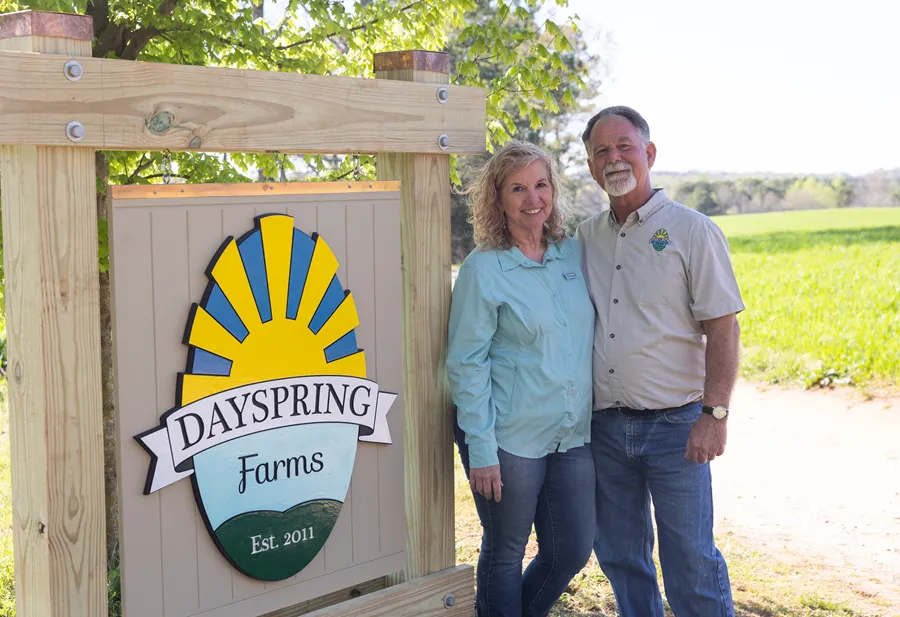
A regenerative grain farm, Dayspring Farms, used its grant funds to create a refrigerated storage room for grain storage and pest control. The refrigerated storage will prevent grain loss and support the expansion of the farm’s capacity. Co-owner Murray Brett shared his desires to grow and sophisticate his operations, but he feared taking on debt, noting: "This grant was right on time.”
Family-owned and operated by Murray and Paula Brett, DaySpring Farms is the realization of the family’s dream to reclaim a better and more sustainable way of life. The family got their start growing mixed produce, and by year two, they attempted growing three acres of wheat, the start of their milling business. The Bretts are always conscientious of soil health and the health of the environment. The 87-acre farm, founded in 2011, is USDA Certified Organic. DaySpring’s Mill provides a full line of organic wheat flours and corn products, all grown, cleaned, and milled fresh on site
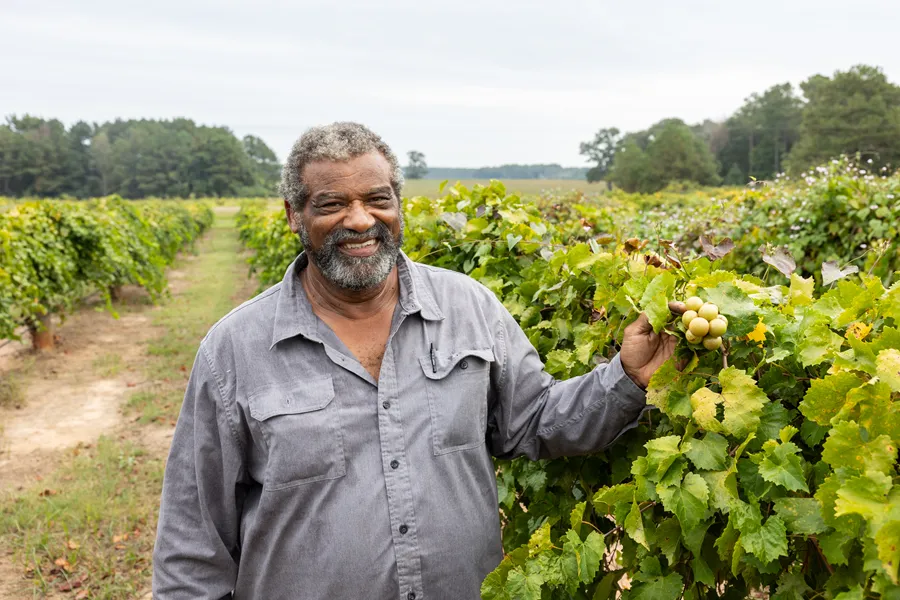
Veteran grower Howard James used grant funds to invest in irrigation, deer fencing, and a new cooling system that supports expanded production of turnips, mustard, and collard greens, as well as several hundred fruit tree seedlings to include peach, plums, and nectarines. The addition of a pre-cooling system helps maintain product freshness from harvest to delivery.
Howard James’ family has been farming for more than 150 years. A Black farmer and military veteran, James returned to the farm in the late 70s, eventually purchasing the operation from his father in 1997. Named for his mother, Edith James, whose nickname was Jibb, James now farms more than 1,100 acres growing muscadines, watermelon, persimmons, plums, peaches, peas, collards, and butterbeans, among other crops. A respected leader in the region, James is involved with the National Black Growers Council, the Farm Bureau, and the local HBCU, Fort Valley State University, frequently hosting everyone from farmers to senators on his south Georgia farm.
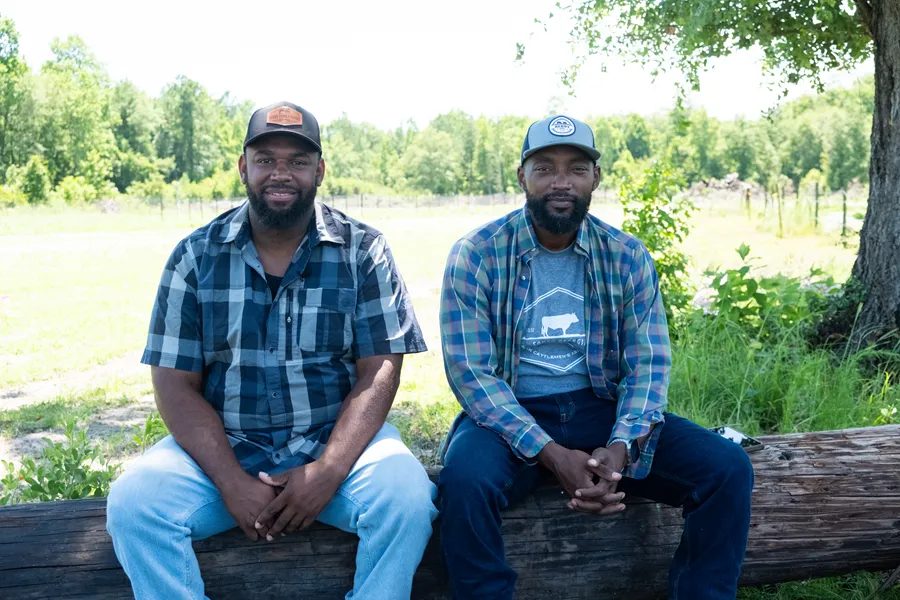
With deep roots in Southeast Georgia, Berry Family Farm is scaling its vegetable production with the purchase of a mechanical transplanter and fertilizer side-dresser. These tools will reduce labor needs and support increased production on up to 15 acres.
Previously, all planting was done by hand. Owner Cedric Berry reported, "With this new machinery, we can do in one day what used to take four or five days,” reducing labor costs and doubling production potential.
Berry Family Farms & Ranch is a multi-generational operation rooted in a passion for agriculture and community. Their mission is to model the importance and coolness (their words!) of farming to all ages, emphasizing the vital role of caring for the land and providing sustenance for the community. Founded in the 1950s by Curtis Berry and his father, the farm began as a modest venture to grow crops and raise animals. Curtis Berry’s vision of generational wealth, inspired by his father’s sharecropping experience, led him to cultivate the land and pass on the farm to his sons, Aubrey, Leander, Kenny, and Robert. Today, the third generation continues to honor their grandfather’s legacy, striving to provide fresh foods to their community.
Rag & Frass Farm – Jeffersonville, GA
Organic grower Julia Asherman upgraded the farm’s post-harvest “porch” infrastructure, which houses cold storage and also serves as a shared aggregation space for 12 other farms in the Middle Georgia Growers Cooperative. The improvements will support increased capacity and food safety for the farm’s growing business.
D&FH Farm – Eastman, GA
This multigenerational family farm enhanced its irrigation system for more water-efficient growing. This funding allows the team to have a greater opportunity to increase vegetable production to allow the farm to serve more markets.
Gussie Farms – Sparta, GA
Veteran-led Gussie Farms invested in a temperature-regulated storage facility to extend their sweet potato storage season. Sweet potatoes are a popular product that is in year-round demand from K-12 schools and institutions.
G4Farms – Ellenwood, GA
A network of five urban farms—including G4, Eco-Paradigm, and Gratitude Botanical—utilized grant funds to purchase essential tractor attachments to increase their efficiency and production of specialty crops. These upgrades will allow for better weed and soil management, and more timely harvesting—all critical steps for entering and succeeding in wholesale markets.
By making strategic investments in infrastructure and partnering with local institutions, The Georgia ACRE Collective, The Common Market Southeast, and Georgia farmers are working together to make values-based procurement the norm, not the exception. For more information about The Georgia ACRE Collective and how The Common Market Southeast supports farmers, check out our newest case study: Building Resilient Agriculture through Forward Purchasing Commitments and Direct Farmer Financial Investment.
Our friendly and educated team is here to partner with you every step of the way. Connect today to learn of all the ways to partner with The Common Market.
"The Common Market has been wonderful to work with. Not only is the customer service great but the products are also."
— Derick Smith, Culinary / Culinary Purchaser, Cancer Treatment Centers of America